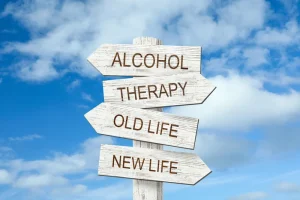
But both alcoholism and binge drinking can have similar health consequences. Over the long run, alcohol increases the risk of several cancers, including cancer of the liver, mouth, throat, voice box, esophagus, colon, and rectum. Even a few drinks a week is linked with an increased risk of breast cancer in women. After a single night of binge drinking, some of the short-term effects will go away. Our writers and reviewers are experienced professionals in medicine, addiction treatment, and healthcare. AddictionResource fact-checks all the information before publishing and uses only credible and trusted sources when citing any medical data.
Ozempic Reduces Desire to Binge Alcohol, Suggests Amazing New Study

Large amounts of alcohol consumed over a long period of time can negatively impact the parts of your brain that deal with judgment, balance and coordination. It’s essential to seek alcoholism treatment as soon as you recognize that you have an unhealthy relationship with alcohol to avoid the short and long-term dangers of binge drinking, alcohol abuse, and addiction. We publish material that is researched, cited, edited and reviewed by licensed medical professionals. The information we provide is not intended to be a substitute for professional medical advice, diagnosis or treatment. It should not be used in place of the advice of your physician or other qualified healthcare provider. It should not be used in place of the advice of your physician or other qualified healthcare providers.
Are there any health benefits to drinking alcohol?
- We cannot guarantee payment or verification eligibility as conveyed by your health insurance provider will be accurate and complete.
- Navigating the world of social gatherings, celebrations, or even daily life can sometimes lead you toward excessive alcohol consumption.
- We are committed to helping people achieve freedom from their addiction as safely and comfortably as possible.
- They cannot be trusted to care for their own needs or well-being and should not be left responsible for children or others.
- Just one call can be the beginning of your transformation, making us your trusted partner in battling addiction and mental health issues.
Many people grab a drink with coworkers, have a glass of wine or two with dinner, or have a beer at the end of the day regularly. Even if you feel you do not have an alcohol use disorder, you may benefit from an addiction treatment center. These programs have valuable resources that can help you learn how to change binge drinking effects unhealthy behaviors and improve your quality of life.
Is There a Connection Between Depression and Addiction?
However, despite its prevalence on college campuses, binge drinking behavior happens across all demographics, posing significant health risks. From short-term effects like injuries and alcohol poisoning to long-term consequences, including chronic diseases and mental health issues, the health impact of binge drinking is significant. People who binge drink are more likely to find themselves in high-risk scenarios or incur injuries while performing day-to-day activities. “Binge drinking places individuals at an increased risk for accidents, traumas, injuries, and social or legal issues,” says Jaffa.
FASD is a lifelong disorder with effects that include physical, mental, behavioural and learning disabilities. For example, combining alcohol with another depressant drug that slows the nervous system, like cannabis and opioids, can increase the effect on the body. In some cases, the combination is dangerous and potentially fatal. Assessing the risks and benefits of alcohol consumption remains an active area of research that may lead to major changes in official guidelines or warning labels. Of course, no one needs to wait for new guidelines or warning labels to curb their drinking.
- Avoiding drinking on an empty stomach can also help, as food can help slow the absorption of alcohol.
- While you can’t force a loved one to abandon their binge drinking habits, voicing your concerns and offering support in the right way may help motivate them to change their ways.
- From short-term effects like injuries and alcohol poisoning to long-term consequences, including chronic diseases and mental health issues, the health impact of binge drinking is significant.
Additionally, a 2017 study suggests that binge drinking may be an early risk factor of developing AUD. For example, a 2018 cross-sectional study found a strong relationship between adolescents who binge drink and developing AUD. There are several options available for people who currently binge drink. These may help them gain control of their drinking habits or even stop drinking altogether.
Alcohol can damage body tissues and interfere with your body’s ability to absorb nutrients and break down harmful chemicals. These effects can increase your risk of various types of cancer, including mouth, throat, esophagus, breast, liver, and colon cancer. Alcohol lowers inhibitions and, in the moment, makes you feel more relaxed. Because of this initial effect, people often use alcohol to cope with social anxiety.
How alcohol interacts with other substances
Over time, a binge drinker is at a higher risk for severe health problems such as liver disease, pancreatitis, and certain types of cancers. Excessive drinking can lead to vascular diseases, such as high blood pressure, heart disease, and stroke. Digestive problems and liver disease are also potential long-term health risks that binge drinkers face. As binge drinking Alcoholics Anonymous involves consuming significantly higher amounts of alcohol, the health impact can be more severe. Another common and more immediate effect of binge drinking is alcohol poisoning. This is when your blood alcohol levels are so high that your body isn’t able to remove the toxins quickly enough.

Beyond the physical effects, your mental well-being is also at stake. Binge drinking can lead to mood disturbances like depression or anxiety. Regular, heavy alcohol intake can disrupt your sleep patterns, robbing you of restful nights. Moreover, repeated episodes might foster guilt, shame, or even isolation. Binge drinking is consuming more alcohol than your body can handle in a short amount of time.

Among those who reported binge drinking, frequent binge drinkers had a total cholesterol level up to 10.1 mg/dL higher than non-binge drinkers. Even among the positive studies, potential health benefits are often quite small. In addition, alcohol may reduce the risk of one condition (such as cardiovascular disease) while increasing the risk of another (such as cancer). So it’s hard to predict who might actually benefit and who may be harmed more than helped by alcohol consumption. And the balance of risk and benefit likely varies from person to person, based on individual factors such as genetics and lifestyle factors. If you’re a binge drinker, the first step to changing your drinking problem is to understand what factors drive your behavior.


